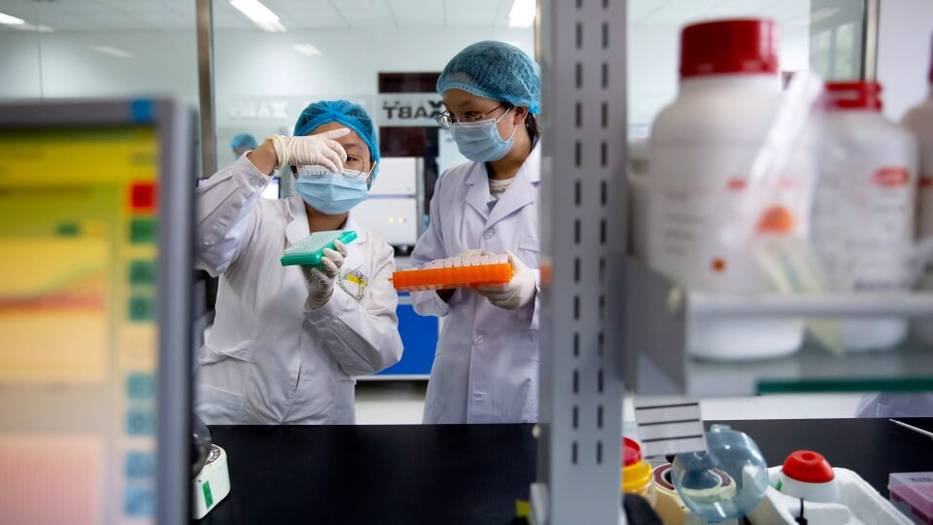Employees work in a research and development lab of Beijing Applied Biological Technologies, a firm which is developing COVID-19 molecular diagnostic test kits, during a government-organized tour for journalists in Beijing, Thursday, May 14, 2020. Image credit: AP Photo/Mark Schiefelbein
Everyone is now worried about the vaccine or drug that can cure COVID-19. Different researchers from the scientific organization are in the front line for the development of the COVID-19 vaccine, working 24/7.
On May 16, 2020, the Canadian health agency, Health Canada, has given approval of the first Canadian clinical trial for a potential COVID-19 vaccine. Prime Minister Justin Trudeau announced on May 16, 2020, that the Canadian Center for Vaccinology at Dalhousie University has been given the green light by the federal health authority to begin clinical trials of the vaccine candidate.
The approved clinical trial is a vaccine candidate is Ad5-nCoV. To date, May 16, 2020, Health Canada has authorized 33 clinical trials for supportive care or treatments for COVID-19, and the test approval of Ad5-nCoV is the first approval.
Though this is greatly hopeful news, especially when we all are having to want the end of COVID-19, there is still a long way to go before any possible treatment becomes a reality.
President Trudeau said if the trial becomes a success story then the National Research Council of Canada will work with the manufacturers of the potential vaccine and make it manufactured domestically.
Trudeau during his daily press briefing outside his home in Ottawa said, "If these vaccine trials are successful we could produce and distribute it here at home."
Like most other clinical trials, this one will be carried out in three phases.
In the first phase, they need to have about 100 volunteers age between 18 and 55.
Dr. Scott Halperin, director of the Canadian Center for Vaccinology at Dalhousie University in Halifax, said, "Volunteers will receive a dose of the vaccine, and they'll be monitored very closely to see the safety of the vaccine, how well it's tolerated and whether it generates a good immune response to the vaccine."
The volunteer will be given a dose of the vaccine and regular blood tests will be conducted to track their progress over a six-month period.
The test will move into its second phase if the data from the first phase shows the potential vaccine is safe for humans. For the second phase, they are required to have hundreds of more volunteers of all ages. In this phase also, volunteers will be in close watch for any signs that the vaccine candidate may not be as safe as believed and paid attention to how the body is responding to it.
Then the trail enters into the third phase and this phase is the largest of all. This phase requires thousands of volunteers.
The third and final phase will be the largest of all, requiring thousands of volunteers. It will aim squarely at the biggest question of all: Does the vaccine candidate prevent COVID-19 infection?
Halperin said, "The vaccine is given, and then we wait to see whether people who, when they come in contact with the virus under natural conditions, whether they're protected compared to somebody who just received a placebo immunization."
Ad5-nCoV was developed in China and human trials have already entered the second phase.
So, here, in the case of the Ad5-nCoV vaccine, the Dalhousie team will also take into account the previous results from China. Ad5-nCoV was developed in China and human trials have already entered the second phase.
Trudeau said, "Research and development take time and must be done right, but this is encouraging news."
